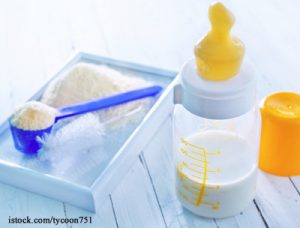The FDA has published a final rule amending the food additive regulations to no longer allow the use of bisphenol A (BPA) epoxy resins as coatings in packaging for infant formula. Although many consumer organizations have asked for this ban for years, the government is stressing that this action was taken “because these uses have been abandoned,” and not because of health concerns. The document will be published in the Federal Register on July 12, 2013.
 A petition filed by Representative Edward Markey (D-MA) last year proposed to amend the regulations. Markey issued a press release stating that “this is a major victory for American families, and I join with parents in celebrating safer feeding time for their babies now that this toxic chemical will forever be banned from infant formula.” He continued, “however, some other industries are ignoring consumer concerns and continue to poison our food supply with this dangerous chemical by including it in other food and beverage packaging, including most canned goods.”
A petition filed by Representative Edward Markey (D-MA) last year proposed to amend the regulations. Markey issued a press release stating that “this is a major victory for American families, and I join with parents in celebrating safer feeding time for their babies now that this toxic chemical will forever be banned from infant formula.” He continued, “however, some other industries are ignoring consumer concerns and continue to poison our food supply with this dangerous chemical by including it in other food and beverage packaging, including most canned goods.”
BPA is a controversial chemical. The FDA insists that it is safe for humans, although many studies have shown it may cause health problems, including endocrine disruption, which may lead to cancer, cardiovascular, and reproductive system disorders. The National Resources Defense Council is opposed to BPA in food packaging, stating that “scientific studies continue to raise disturbing questions about long-term effects of BPA exposures, especially in fetuses, babies, and young children.”
Consumer pressure forced baby food manufacturers to abandon the use of BPA in food packaging, according to Environmental Working Group. Consumer advocates are hopeful that this sentiment will have the same effect on other food manufacturers and lead to a complete ban on the chemical in food packaging. BPA has been found in the bodies of almost all Americans over the age of six; the EPA estimates that the U.S. produced 2.4 billion pounds of the chemical in 2007.




